|
Self-confidence not only affects how you feel about yourself day-to-day, but also impacts your work life and relationships with others. Whether your confidence is at an all-time-low due to comparing yourself to others, a relationship breakup, being passed over for a promotion or job, or feeling isolated from others in an increasingly virtual world, there are steps you can take to boost your confidence.
Today's post goes over 4 of these tips. I encourage you to think about what has got you feeling low about yourself lately, and try to customize at least one of these tips to work for your situation.
0 Comments
The past few years has been a whirlwind of world-changing news - and COVID-19 was certainly one of the headlines that affected every one of us, whether directly, through a loved one, or by affecting how we manage our ongoing health concerns.
A bright spot in the darkness was the amazing collaboration that fast-tracked the development of COVID-19 vaccines. While all of us have been affected by the events of the past few years, many of us have learned more about ourselves and how we respond to change and struggle. In this post, I'll highlight a few lessons that I've been reflecting on.
Stress comes from all directions in life, but sometimes you just need someone to tell you to sit down and take stock of where you are. This post will talk about some different types of stressors and provide a little push to get you back on track to taking care of yourself.
Image by Peggy und Marco Lachmann-Anke from Pixabay
Graduate school is often a time of both professional and personal challenges, namely because you're now in adulthood. But why am I writing about end-of-life planning on a grad school lifestyle blog? Because you may have a sick parent, and experience the importance of having an advance directive, power of attorney, and updated will on hand.
Tragedies, like unexpected illness and accidents, can strike any time. Having your documents ready and documented means you get to decide the details of your health journey, while also saving your family from extra stress and arguments. The infographic below guides you through end-of-life planning and advanced directives.
Happy New Year! If you're like me, you spent your winter holidays on a soft and cold diet after getting your tonsils out.
Chances are, you're not like me in this department, but maybe you've clicked to this page because you're thinking about getting a tonsillectomy. Your doctor, the Internet, or friends and family may have told you that getting your tonsils out as an adult is a harder recovery than having them removed as a child. Many of us grew up with friends or siblings who had their tonsils out. It used to be routine to remove children's tonsils, however recent research revealed that children who get their tonsils removed before the age of 9 or 10 may be at increased risk of upper respiratory issues as an adult, like asthma. Tonsils are part of your immune system, and your immune system isn't fully developed until late adolescence or early adulthood. Researchers think that children having their tonsils removed at an early age can impact their immune system, affecting future disease risk. However, when adults get their tonsils removed (typically for chronic sore throats, less so for sleeping issues), research shows that the benefit of reduced sick days and better quality of life means the 2 weeks of recovery is worth the pain. Read on to learn about my experience getting my tonsils removed at age 28, on grad school holiday break.
With an arctic blast dropping temps to 100-year record lows across the US, it truly feels like winter is here!
When we think about our winter health we often think of cold, flu, and mental health. Being indoors more often means we're more likely to catch a bug from our cubicle neighbor, and less time spent outdoors and/or less sun exposure can contribute to feelings of isolation and depression. College is a unique life experience - independence from family members and high school teachers comes with new responsibility over your time and self-care.
Peer pressure to socialize at the expense of your school work can lead to you falling behind, or the abrupt change in classroom style may lead you to struggle with your material. Being away from home can be lonely, and the added stress of school can make you shy away from meeting new people. Some quick tips? Pay attention at orientation to what resources your school has available for you, from tutoring to counseling, to interest groups to help meet new friends. Tutoring can help you learn how you learn, overcoming difficulties in new coursework, while counseling can help you identify negative thoughts and replace them with positive ones. You can also learn positive self-care coping strategies. Finally, develop your time management skills by utilizing assignment and quiz dates to stay up on your materials, blocking your time around classes to be efficient while on campus. Read on for more tips. Last week I talked about whether online courses are the right choice for you and I've written before about how to balance work and hobbies, and even how to leverage your hobbies.
Whether you're a naturally curious individual, always eager to learn something new in your downtime, or whether you want to bring more meaning to your life by learning something new, it's never too late to start.
Did you know that 70% of Millennials experience imposter syndrome?
Imposter syndrome affects high-achieving individuals who fear they aren't as intelligent as others perceive them to be. Do you worry that you'll be "exposed" in your workplace? That you don't belong? Successful professionals are most likely to struggle with imposter syndrome, particularly if they have trouble internalizing success. Do colleague's compliments roll off your shoulders, but criticism reverberates for weeks? Being modest about your success is healthy as long as you own your accomplishments - don't poke holes in your success! You deserve the recognition that you crave. Impostor syndrome from J. Emilio Flores on Vimeo. It's important to have a life outside of school, and that life might consist of family, friends, and hobbies. Whether you engage in your hobbies for joy or for cash or for both, you can take some steps to leverage that hobby for some side hustle cash while in graduate school.
If you're musically inclined, today's post is for you. Let's talk about leveraging your love of music.
Do you feel like something's been missing in your life? Are you tired of wasting time in the rat race? As a graduate student, it's easy to get bogged down in minutiae of your tasks, feel overwhelmed by never-ending projects, or with unrealistic deadlines. Balancing work and life is important - but what are you going to do during that "life" part?
Image by lisa runnels from Pixabay
If you're unhappy with your current job, consider these 3 potential solutions.
Everyone experiences days where they feel unsure of themselves or don't feel self-confident. This can be a tough cycle to break out of, especially if you've been feeling these feelings for a long time.
One way to improve your self-esteem is by taking care of yourself. By making your own health - both mental and physical - a priority, you're communicating to your own mind that you are worth it. Here's 7 ways that self-care can boost your self-confidence. Take a look at some of the simple ways that self-care can boost self-esteem.
Anxiety is "an emotion characterized by feelings of tension, worried thoughts and physical changes like increased blood pressure."
- American Pyschological Association definition (source)
Anxiety is a normal and often healthy emotion. However, when a person regularly feels disproportionate levels of anxiety, it might become a medical disorder.
Anxiety disorders form a category of mental health diagnoses that lead to excessive nervousness, fear, apprehension, and worry Anxiety disorders affect 40 million people in the United States. It is the most common group of mental illnesses in the country. However, only 36.9 percent of people with an anxiety disorder receive treatment. from Medical News Today (source) Talking with my medical care provider to come to a solution, and to keep adjusting my treatment as life takes its course, has made an enormous difference in my day-to-day life. If you are struggling with anxiety, I encourage you to speak with your medical provider about it. With doctor visits getting shorter and shorter, I recommend preparing beforehand with a list of questions and answers and being sure to initiate the conversation. This article has information on what to expect when you go to the doctor to discuss your anxiety, and ways you can prepare beforehand.
Before we get started I wanted to make another point. Anxiety looks different for different people (and often is not visible at all). Talking about mental health is important to remove stigma and break down barriers, but realize that if you do find someone else with anxiety, their symptoms and treatment options may not be the same as yours. This article outlines the varied signs and symptoms of anxiety - take a look.
Now, let's talk about some lifestyle changes you can make to manage your anxiety (with and without other treatments). Lifestyle plays a large role in our physical health and wellbeing as well as our mental and emotional state. You may feel like you’re being pulled in a hundred different directions, trying to balance family life, work deadlines, financial pressures, and personal wellness.
By identifying your priorities and taking concrete steps to take back control, you can feel better both at work and at home.
It’s normal to find work stressful, and a certain level stress actually makes us more productive. But sometimes the humdrum of spending all day in a cubicle can lead to even more stress. If your stress level has moved from productive to frazzled, it may be time to incorporate small things throughout your work day to decompress.
If exercise helps you unwind, you might search online to see if there are classes near your work to take during lunch hour. You could search for pilates classes, barre, yoga, or whatever sparks your fancy. Not all of us have lunch hours, or can exercise in the middle of the day, so let’s explore some other options.
It's exciting to start a new job. But sometimes a company isn't what it seems. There are strategies to evaluate work culture during your interviews, but in this article, we'll talk about what to do when you're already in a new job, and learn your manager isn't as great as they seemed.
There's a lot of advice online about how to "Manage Your Manager" and on handling confrontation at work - those that exalt it, and those that recommend avoiding it at all costs. Each situation is unique, and so we'll give you three aspects of the situation to think about as you craft a strategy to stand up for yourself at work.
Re-evaluating your priorities is a good idea to do at least once a year, but can be especially helpful if you are feeling stale or stuck in a rut.
Last night, I flew back north after a whirlwind trip for Admitted Students Day. Since I've already accepted the admission offer, my focus for this trip was to hash out my expectations for the upcoming year and to leave a memorable impression on my future advisors and mentors.
Reflecting during the plane ride, I realized that the approach I took during my meetings and interactions could be articulated for you to address the issues of imposter syndrome we all struggle with at one time or another. |
popular postsLike what you read?
categories
All
archives
July 2024
This website uses marketing and tracking technologies. Opting out of this will opt you out of all cookies, except for those needed to run the website. Note that some products may not work as well without tracking cookies. Opt Out of Cookies |






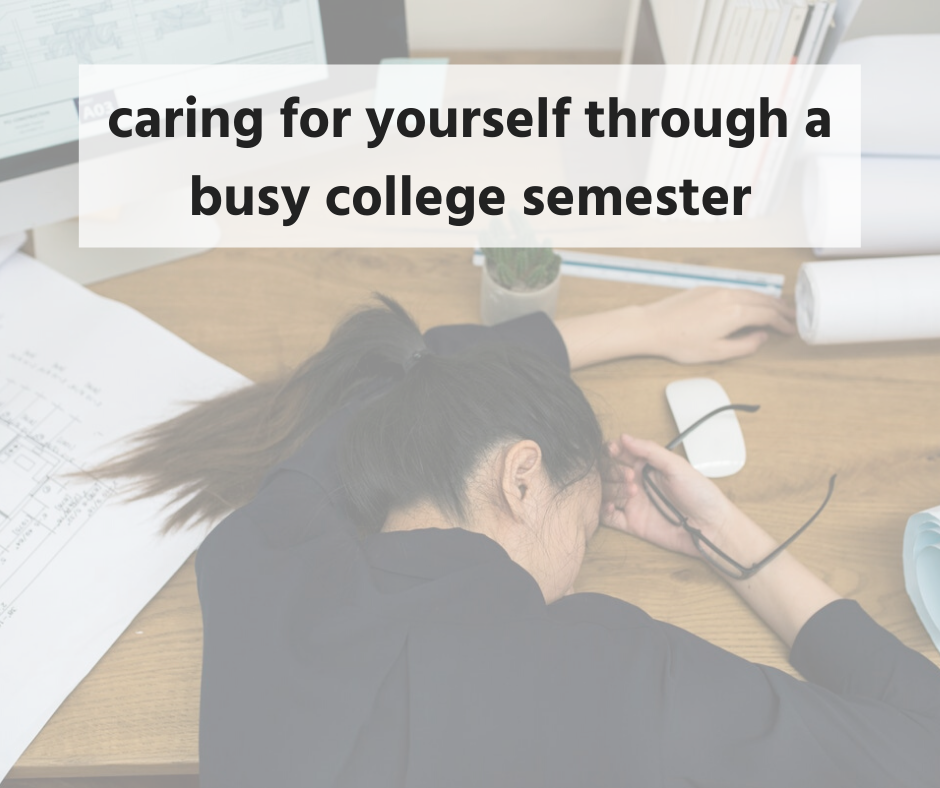







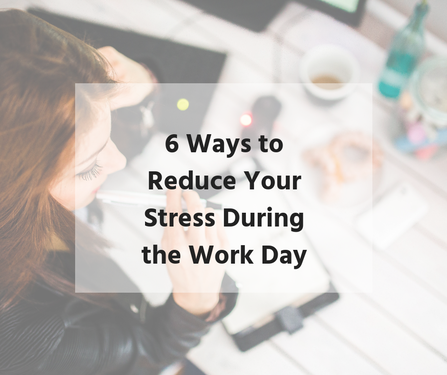
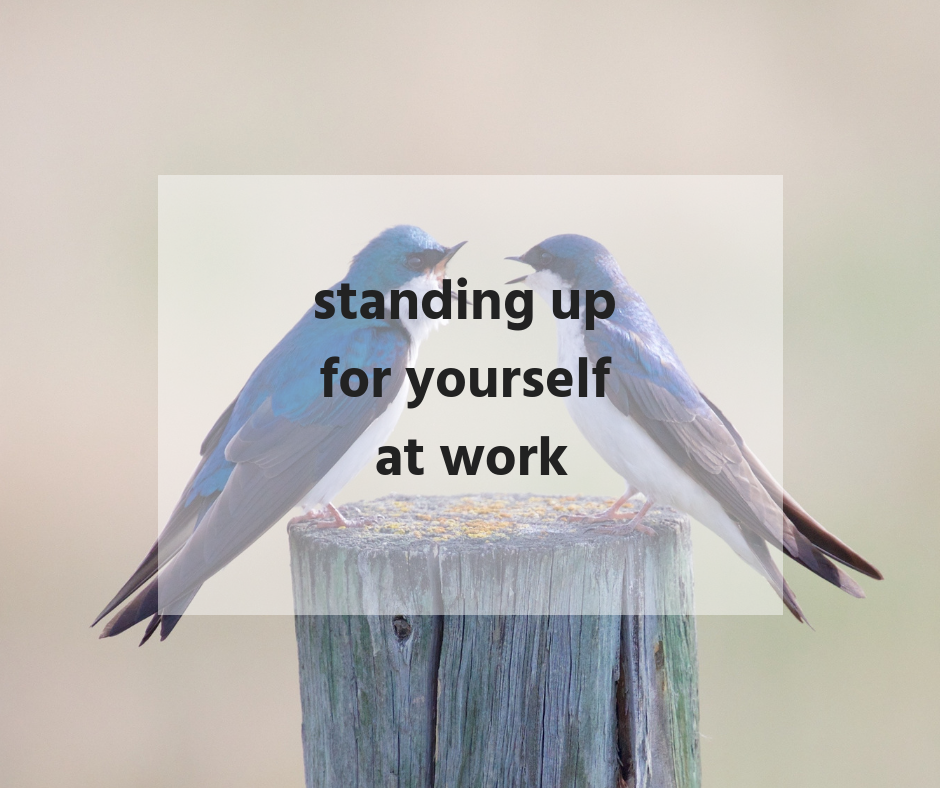

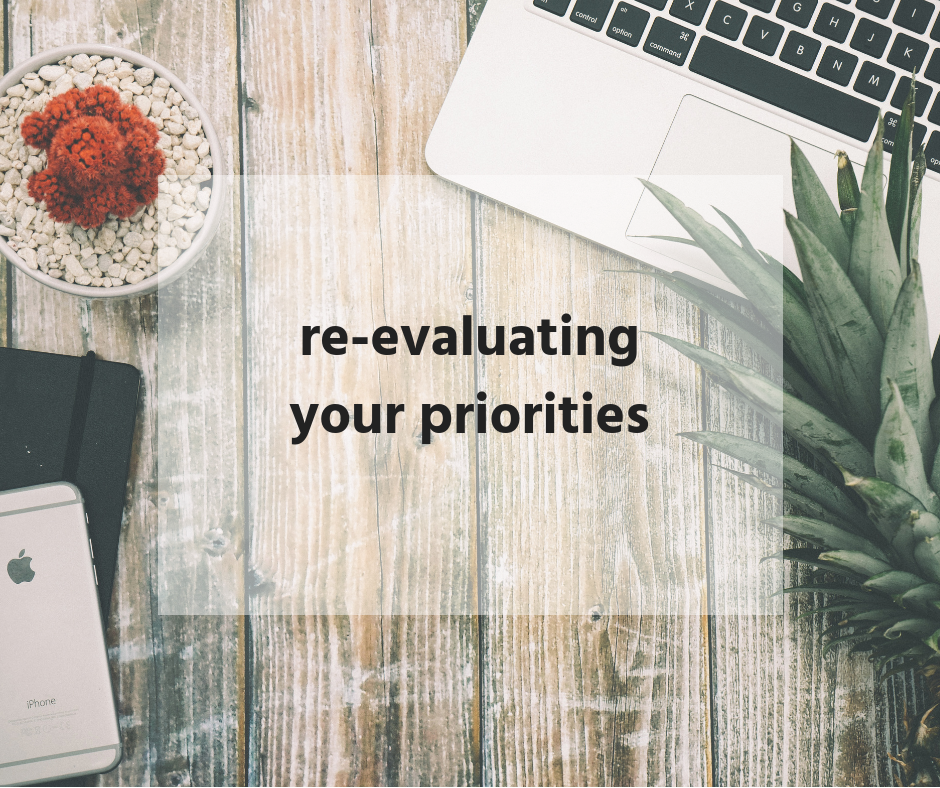
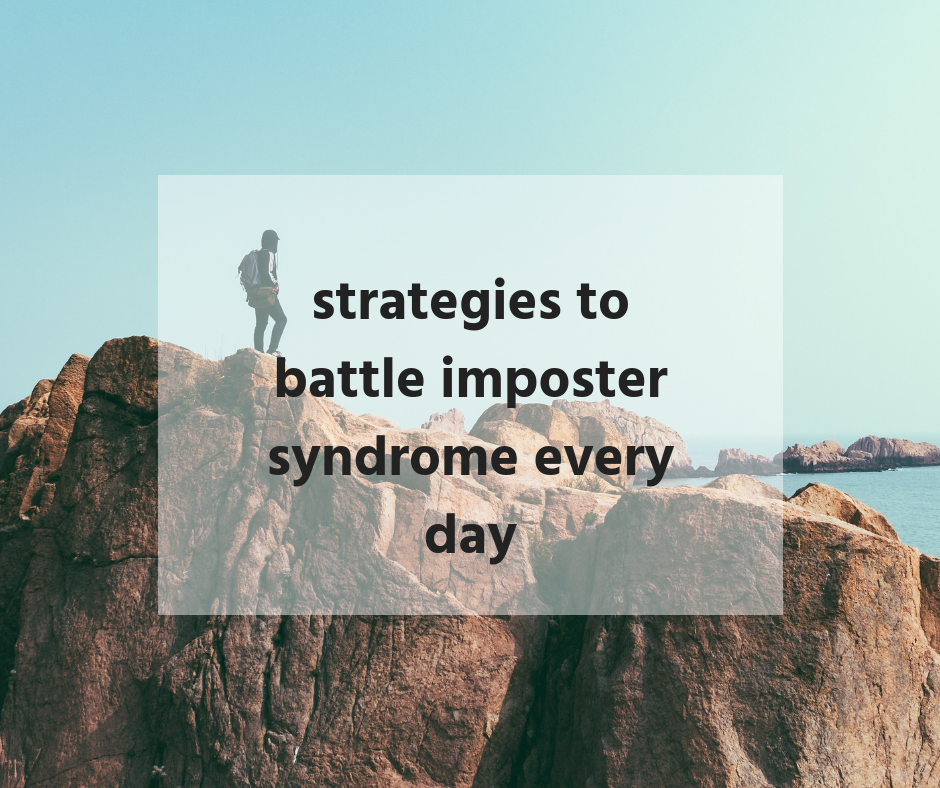







 RSS Feed
RSS Feed